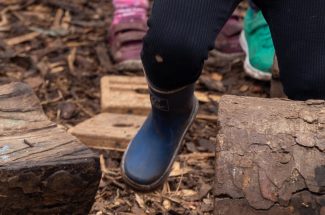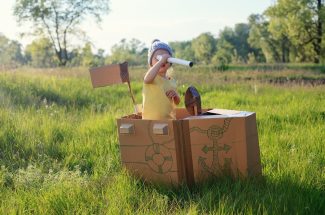Let’s talk about the many benefits of teaching early years children how to cook. And when I say cook – I mean really cook – that means blanching, poaching, grating, sieving, sauteing. Forget about the obligatory passing a bowl around a table for a quick go at stirring a mixture before it disappears and magically reappears as biscuits or cake! I’m talking learning skills that will ignite a passion for one of the
most enjoyable, useful, and social activities in the world – cooking!

Of course, there’s the practical benefits. Everyone knows cooking is a valuable life skill that helps children learn about nutrition and healthy eating habits. They learn about different ingredients, cultures, taste and textures, and how different foods affect their bodies. Cooking lays the foundation for a lifelong love of not only eating but making healthy and delicious food. I’m itching to talk about seed to plate here but we’ll save that for another blog.
There are so many other development high fives – by buzzing around in the kitchen following recipes there they are problem solving, learning about maths, developing their motor skills. Ask them to adlib and work out what a recipe needs from taste and then suddenly they are developing creativity and independence. They learn how to follow recipes, measure ingredients, pour accurately and adjust as needed. I was amazed in the kitchen of the kindergarten the other day when one of our pre-schooler’s smelt and named a selection of herbs one by one – magical stuff. A staff member said oh yes, they can all do that. Proud kindergarten mum am I!
And all this before we have even touched on the sustainability benefits of teaching children how to cook. Cooking from scratch is a great way to reduce waste, as it allows families to use ingredients in a more mindful and efficient way. Children can learn about food waste and how to reduce it, as well as how to use leftovers and create meals that are both nutritious and delicious. Composting? Ssh that’s another blog.
We use cooking to reduce the carbon footprint of our food choices. By using locally sourced ingredients and avoiding processed and packaged foods, children can learn about the importance of reducing their impact on the environment.
So – teaching children how to cook (remember that’s really cook) in an early years setting will certainly have a lasting impact on your children’s lives. Isn’t that why we are in this wonderful enriching game? Whether they’re learning practical life skills, developing a love of healthy and delicious food, or helping to reduce waste and protect the environment, there are many reasons to encourage children to get involved in the kitchen. So, let’s give our children the tools they need to succeed, and ramp those cooking sessions up a notch or two!







